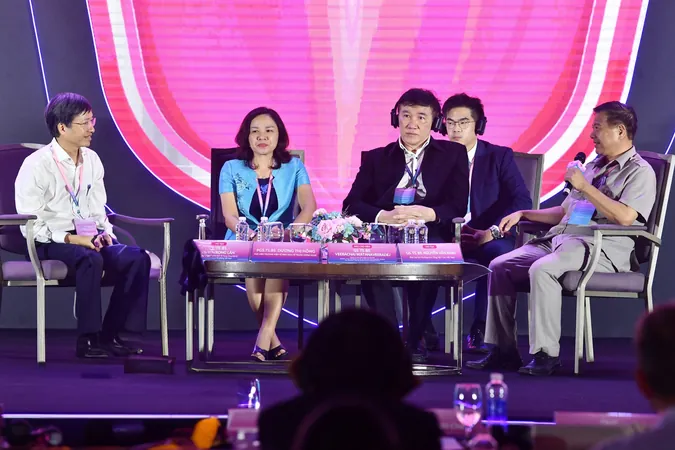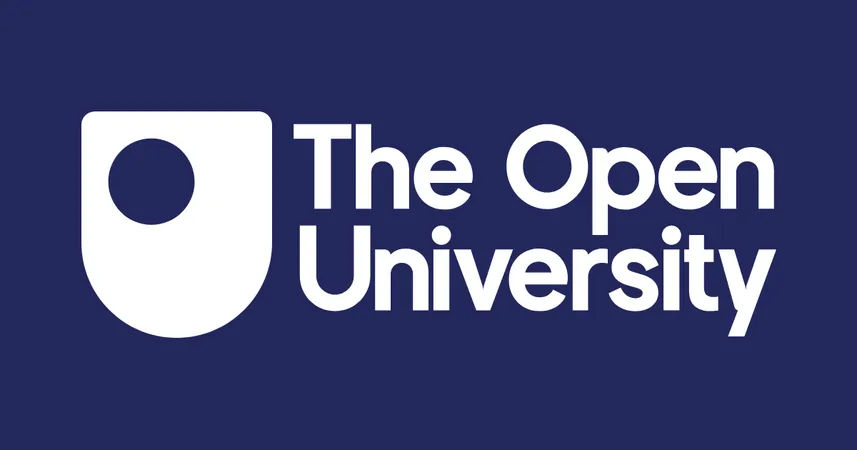
Breakthrough in Dengue Fever Prevention: A New Era for Vietnam!
2024-10-01
Introduction
In a significant step towards combating dengue fever, experts recently convened at a symposium jointly organized by the Pasteur Institute in Ho Chi Minh City and the Vietnam Association of Prevention Medicine (VAPM) in Hanoi. The event, themed "Vaccine: A New Paradigm in Dengue Fever Prevention in Vietnam," attracted nearly 1,000 participants including scientists, healthcare professionals, and key representatives from esteemed organizations such as the World Health Organization (WHO) and the US CDC.
Introduction of the Dengue Vaccine
Approved by the Drug Administration of Vietnam in May 2024, the newly introduced dengue vaccine promises a breakthrough in dengue management, a disease that the WHO warns is among the top public health threats globally. With over 390 million infections reported yearly and incidence rates soaring 30-fold in the last fifty years, the urgency for effective preventive measures has never been greater.
Current Situation in Vietnam
Vietnam has been identified as one of the nations heavily burdened by dengue fever. In stark contrast to the previous decade, Vietnam experienced an alarming spike in cases, including peaks of over 300,000 in 2019 and a staggering 361,813 cases in 2022. Experts are increasingly concerned as the disease becomes more unpredictable, affecting regions that were previously less vulnerable, particularly expanding into northern Vietnam.
Call for Immediate Action
Assoc. Prof. Nguyen Vu Trung from the Pasteur Institute underlined the necessity of immediate action, stating, "Dengue fever usually peaks between July and November, but we are observing troubling cases outside this timeframe, especially severe forms of the disease." This evolving pattern requires renewed efforts and resources for effective prevention.
Collaborative Progress
Prof. Phan Trong Lan, co-chair of the symposium, emphasized the collaborative progress in managing dengue, reflecting on the Vietnamese government's proactive stance, community engagement, and the introduction of the vaccine as pivotal in reducing fatalities associated with the illness. He highlighted that the vaccine, along with ongoing vector control measures, offers a holistic approach to managing dengue's public health impact.
Insights from International Experts
The symposium also featured insights from international experts, including Thailand's Prof. Veerachai Wattanaveeradej, who shared findings related to vaccine safety and surveillance from clinical trials. Dr. Derek Wallace from Takeda spoke highly of the dengue vaccine's potential, expressing optimism about its impact within Vietnam’s arsenal against this prevalent disease.
Collaboration for Enhanced Strategies
Dion Warren, representing Takeda across Southeast Asia, echoed the call for collaboration in enhancing dengue prevention strategies, stating, "The introduction of this vaccine is not just a new tool; it's a glimmer of hope for the future of dengue management in Vietnam."
Photo Exhibition in Honor of Healthcare Professionals
In a bid to honor the dedication of healthcare professionals in managing dengue, a photo exhibition titled "Three-Decade Journey of Preventing and Controlling Dengue Fever in Vietnam" was launched simultaneously in both cities.
Vaccine Approval and Future Prospects
Currently, Takeda’s dengue vaccine holds approval in over 40 countries, including several in Latin America and Southeast Asia. Its inclusion in the WHO's List of Prequalified Vaccines signifies its safety and effectiveness, bolstering hopes for public health gains in dengue prevention.
Conclusion
With this innovative vaccine on the horizon, there is hope that Vietnam can turn the tide against dengue fever, protecting thousands of lives and providing a model for preventive healthcare strategies worldwide. Keep an eye out for more developments in this critical public health battle!




 Brasil (PT)
Brasil (PT)
 Canada (EN)
Canada (EN)
 Chile (ES)
Chile (ES)
 España (ES)
España (ES)
 France (FR)
France (FR)
 Hong Kong (EN)
Hong Kong (EN)
 Italia (IT)
Italia (IT)
 日本 (JA)
日本 (JA)
 Magyarország (HU)
Magyarország (HU)
 Norge (NO)
Norge (NO)
 Polska (PL)
Polska (PL)
 Schweiz (DE)
Schweiz (DE)
 Singapore (EN)
Singapore (EN)
 Sverige (SV)
Sverige (SV)
 Suomi (FI)
Suomi (FI)
 Türkiye (TR)
Türkiye (TR)